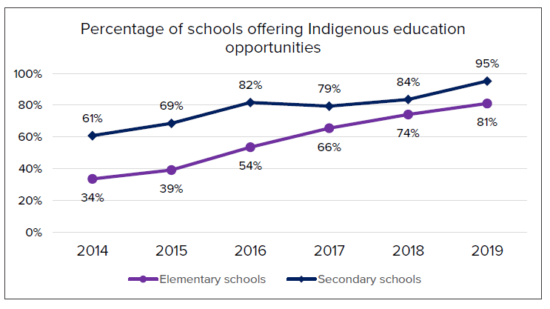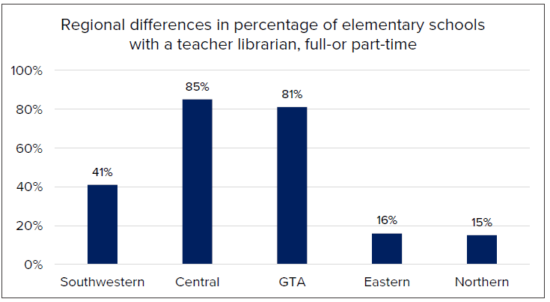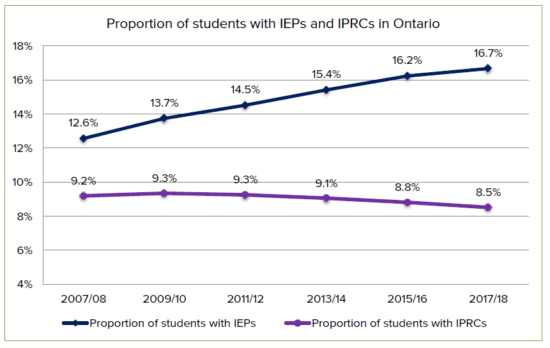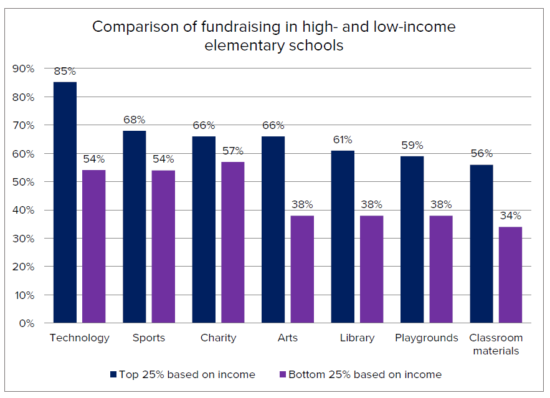New report calls for coherence and caution in education changes
Annual report on Ontario’s schools focuses on need for education “ecosystem”
For immediate release
TORONTO (June 17, 2019) – In its 2019 Annual Report on Schools, People for Education cautions that in a time of rapid social and economic change, well-resourced schools are more important than ever. The report raises concerns about the potential impact of the province’s plans to “modernize” education while at the same time it is reducing funding for the teachers and other supports that play key roles in schools.
The report – titled What Makes a School – says that effective schools operate like ecosystems, and that students’ success depends on a combination of multiple adults in the school, and access to a range of programs and learning opportunities. The authors point out that effective policy implementation requires evidence, coherent strategy, and targeted resources.
 The data in this year’s report – based on responses from 1254 schools across Ontario – show the positive impact when policy change is accompanied by resources and coherent strategies. The report points to Indigenous education in particular, where, after years of funding increases and clear policy direction, the proportion of schools with Indigenous education programs has approximately doubled.
The data in this year’s report – based on responses from 1254 schools across Ontario – show the positive impact when policy change is accompanied by resources and coherent strategies. The report points to Indigenous education in particular, where, after years of funding increases and clear policy direction, the proportion of schools with Indigenous education programs has approximately doubled.
However, the report also points out that the province’s vague fundraising policy has failed to address the impact of family income on schools’ capacity to raise money for things like technology, libraries and classroom supplies.
 Large regional disparities for school libraries
Large regional disparities for school libraries
The traditional school library is evolving into a diversified – and essential – learning space, where teachers and students not only access books, but also engage with a wide range of technology and resources, and develop collaborative cross-curricular projects. But, according to the report, northern and rural elementary schools are much less likely to have staff in their libraries. Among the findings in the report:
- The proportion of elementary schools with a teacher-librarian, full- or part-time has declined from 80% in 1998, to 54% in 2019.
- 9% of Ontario elementary schools have neither a teacher-librarian nor a library technician
 Special education continues to be a challenge
Special education continues to be a challenge
Despite years of adjustments to policy and funding for special education, principals continue to report special education as one of their greatest areas of strain. The proportion of students requiring/receiving special education support has increased steadily over the last two decades, however over one third of the funding for special education is based on demographic data from 2006.
 Fundraising
Fundraising
Ontario schools raised a combined total of over $583 million last year through school-generated funds. Among the findings in the report:
- 26% of elementary schools report raising $20,000 or more, up from 7% in 2001, and 16% in 2015.
- In elementary schools, the top 10% of fundraising schools raised 33 times the amount raised by the bottom 10%, with some schools raising as much as $100,000.
- In secondary schools, the top 5% of schools raised as much as the bottom 82% combined, with some schools reporting raising $220,000.
- On average, schools in high socioeconomic areas (with higher parental levels of education and higher family incomes) fundraise twice as much as schools in low socioeconomic areas.
- Impact on students should remain the focusAt the press conference to release the report, People for Education’s Research Director, Eloise Tan cautioned the province to implement changes with care.
Grade 11 student, Cicely Campbell also raised concerns, saying, “The person who made the biggest impact in my academic career is Maria Greco, a CYW who changed my life. My high school journey has been an uphill battle, and I would have never been able to make it without Maria. There are many Marias in the education system—it is not only teachers who support students. I’m worried that because of the cuts, other students won’t have a Maria to help them out. People like Maria are fundamental to students like me.”
Read the full report: www.peopleforeducation.ca
– 30 –
For more information please call:
People for Education 416-534-0100
